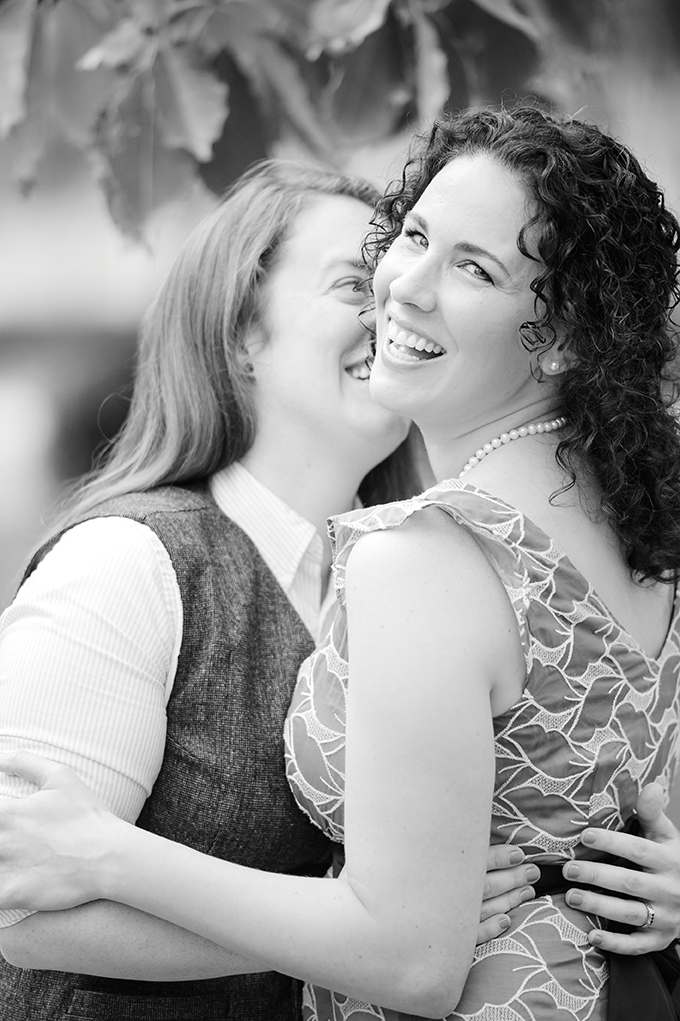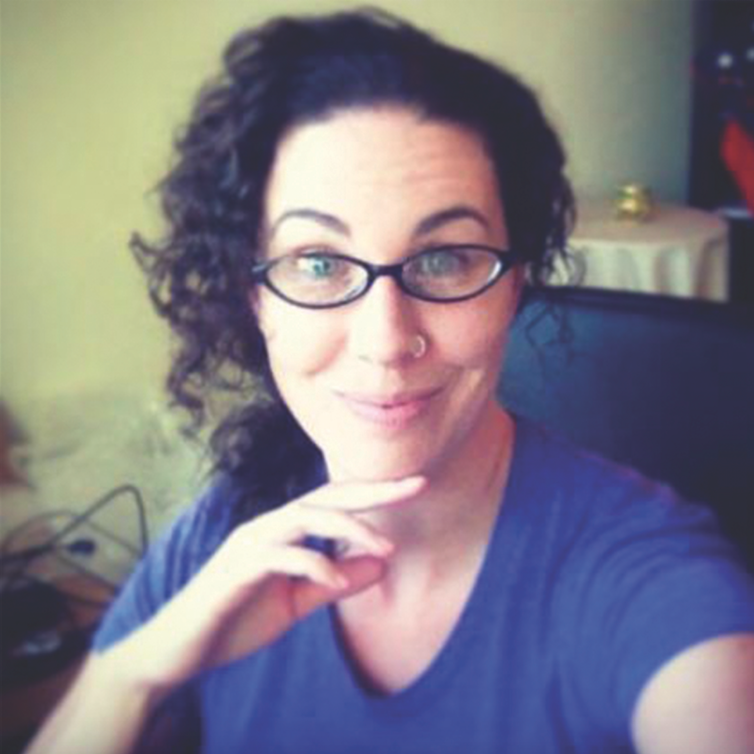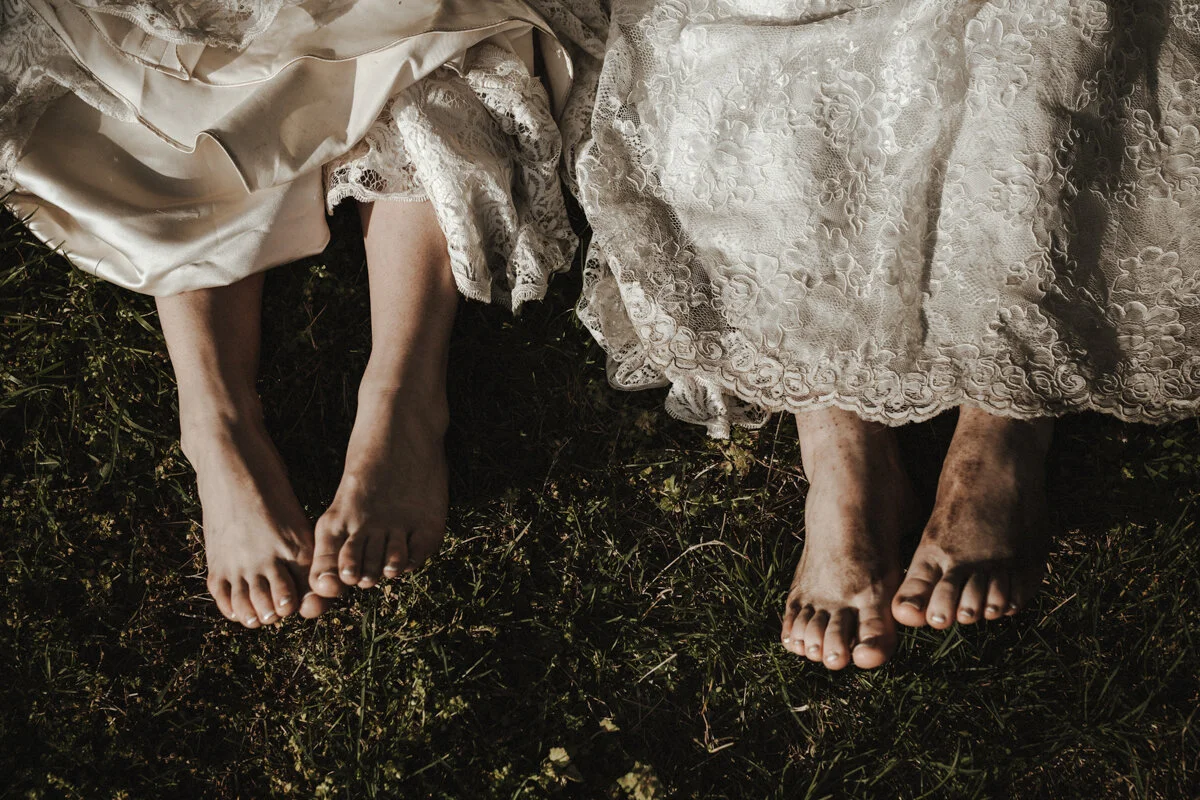A Tale of Two Brides: One Lesbian Couple's Struggle to Have a Christian Wedding
/Photo by Sarah & Ben Photography
“Actually, she’s a woman.”
I’ve been in the store at least ten minutes now, which is plenty of time to size up the saleslady. She’s about my age and has a few visible tattoos, so I’m hedging my bets — inked Gen Xers are usually okay with my kind.
“Oh, I’m sorry,” she fumbles, and I feel bad that I’ve made her feel bad for assuming that I’m marrying a man, and I feel bad that I’ve waited so long to correct her pronouns, feel bad that I haven’t been loud and proud in the engraving shop, feel bad that it all feels so bad when I’m weeks away from the best day and the best woman of my life.
The mainstream wedding industry and media are fixated on a very particular fairy tale: one bride and one groom live happily-ever-after, the end. But my fiancé, Casey, and I believe that our story is just as beautiful without a Prince Charming, maybe even more so because of the obstacles we’ve had on our way to the aisle. From bigoted bakers to monogramming mishaps, ours is a modern-day story of love conquering all.
Over the course of our engagement year, Gays-and-Cakes was a major issue, which was the predecessor to self-martyring county clerks, one more iteration of the tiresome tale of bigoted woe. It became the sword upon which the faithful (to what, I’m not certain) fell, the paramount political issue, the neon sign screaming what we already knew they believed: “You are less than.”
Unlike opposite-sex couples, Casey and I don’t have the luxury of expecting friendly service everywhere. So when we thought about wedding vendors, it was with a trepidation that I had never even conceived of when I was searching for the same services a lifetime ago in my opposite-sex engagement. This time around, I felt keenly the loss of privilege I’d taken for granted before.
So I was cautious at every public turn, tentative when I should have been exuberant with Etsy sellers who signed off with a potentially foreboding “Blessings,” and it was a prophecy fulfilled. “You are less than” became less than a regular bride, less than really engaged, less than traditionally married, less, less, less.
But in our self-made sanctuary — in the hearts where we were known and loved — our engagement was thrilling. There, I was Casey’s deeply desired bride, and she was the fulfillment of a hope I’d barely dared to hold. To so many of our friends and family, our commitment was certain and celebrated. And to our kids, our marriage would be the cornerstone of our home. So when we needed help putting our wedding together, we turned to the people in our sanctuary as much as we could.
We just needed a Christian minister who would be willing to marry a pair of unrepentantly-in-love-with-Jesus-and-each-other lesbians.
My friend Sarah was on an indefinite hiatus from her baking business, but she and her husband, Zach, had been by my side through the roughest times of my crumbling previous marriage. They’d been there to help save it, and when it became clear that wasn’t the answer, they stayed there to help save me instead.
Their faith in God didn’t demand they hold their ideas of marriage sacrosanct; it allowed them to value my humanity above a human institution. And when I came out to them, they called it cause for celebration because they knew it meant I’d found my lost self. Who could be better to craft the taste of celebration at the party for my new life with Casey? So I asked, and Sarah said yes, she would bake again, for us.
The night of our dessert planning, Casey and I sat with Sarah and Zach at their dining table, sipping cocktails they’d created together. We celebrated what was already, and we dreamed up what was to come, complete with a table of desserts to delight our wedding guests. And the centerpiece — their perfect gift to us — would be a cake, 11 Southern layers high, witness.
When it came to deciding on an officiant for our wedding, it sort of didn’t matter — Florida hadn’t legalized same-sex marriage yet, so no ceremony we did in our home state would be official anyway. Except that’s not true. It would be official to us in the most important way — in our hearts, in our souls — and so deciding on an officiant for our wedding actually mattered an incredible deal.
We figured we’d travel out of state to get the legal part handled — even if our home state didn’t recognize it, there were still federal benefits we could avail ourselves of. We were second-class citizens, and we’d have to pay a steep price even for that “privilege,” but we’d take what we could get. So we just needed to find an officiant who would perform the spiritual ceremony.
Let me say that again: we just needed a Christian minister who would be willing to marry a pair of unrepentantly-in-love-with-Jesus-and-each-other lesbians. Great.
So we thought, we prayed, we talked, and then one day, it was just clear: we knew exactly the right person to gay-Christian marry us. We didn’t have to scour our town’s hundreds of churches on a fruitless mission to find one that would consider us acceptable; we could ask Joy.
My friend Joy grew up in an extremely conservative Christian household — she likes to tell the story about sneaking into her parents’ closet while they weren’t home to watch the TV they’d cloistered there. But she could never quite get the hang of staying in the boxes her upbringing had fashioned for her, and when she was in her mid-thirties, Joy felt a wild and wondrous call. She didn’t speak a word of it until years later for fear of judgment, but one evening in a private ceremony, Joy became ordained.
Joy’s story resonated with Casey and me because we both knew what it was to be afraid to follow the truth within, and we both knew the beautiful freedom that comes from finally saying “yes” to being who God made us to be. And when I told Joy that Casey and I both believed in her ordination and wanted her to marry us, she burst into tears and agreed. There is something sacred about being seen and believed as the person you truly are.
And for better or worse, Casey and I see each other. We see every smudge of character and forgive it; we see every glimpse of glory and honor it. I don’t imagine that our marriage will be full of perfection — it’s made up of two flawed people committed to doing life together. But our engagement has proven to me this: our marriage will be a real tale for the telling. Because we are each other’s best story, and our story is love.
TAMARA LUNARDO
Tamára Lunardo is the editor of What a Woman Is Worth, a wayward blogger, and a freelance writer. She is currently writing a memoir about how Jesus helped her out of the closet.






















